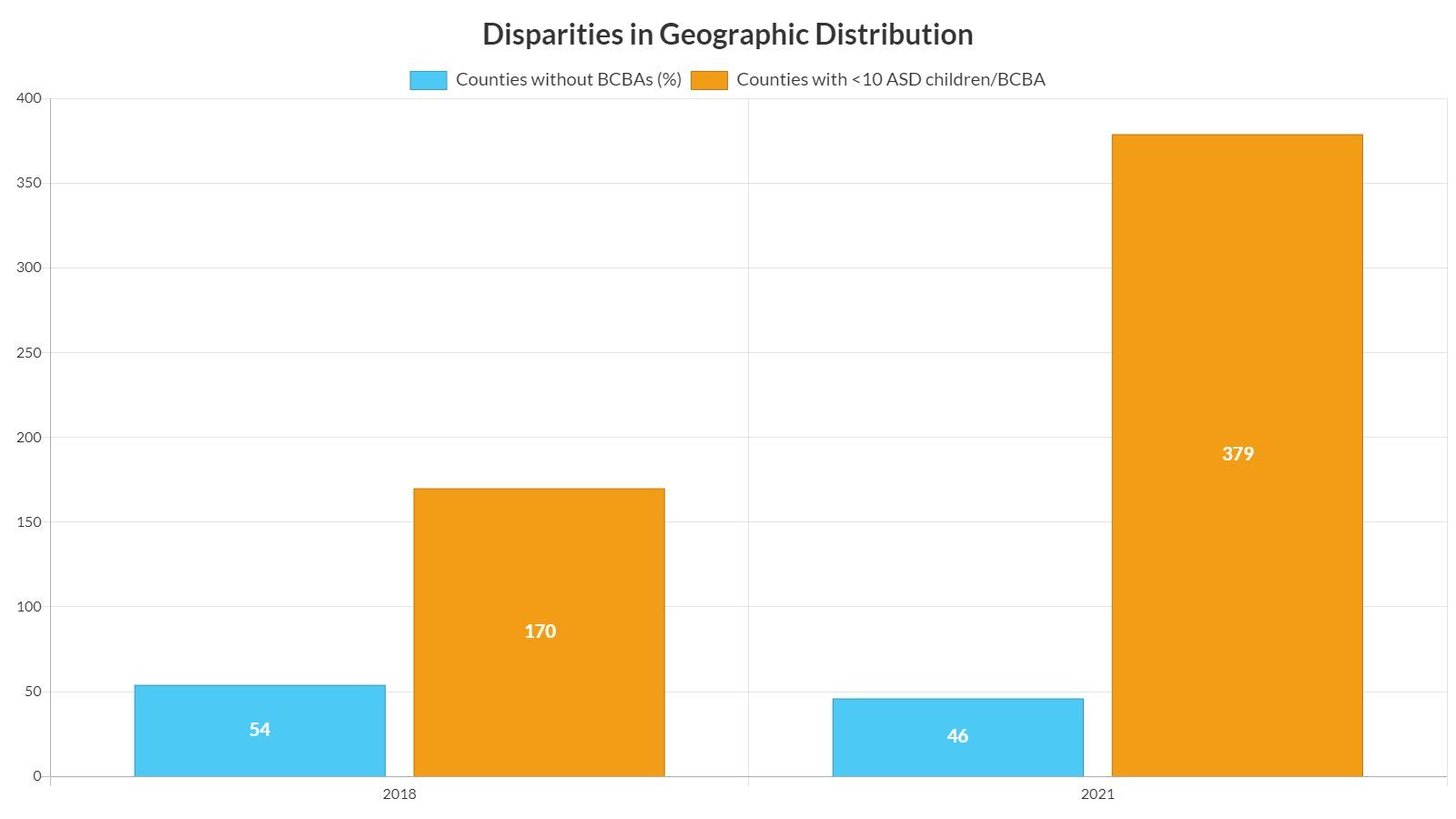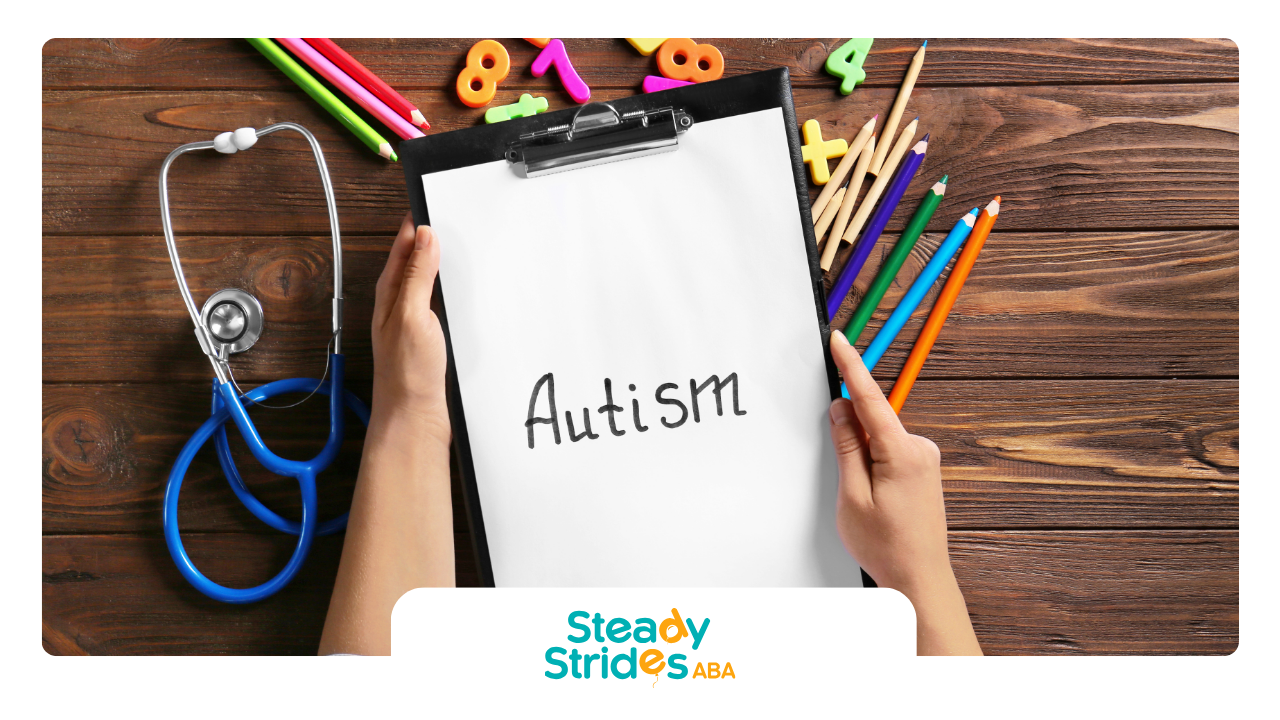ABA Therapy in Texas
Applied Behavior Analysis (ABA) therapy has been a cornerstone in the treatment and education of individuals with Autism Spectrum Disorder (ASD) and related conditions. In Texas, ABA therapy has a significant history and is subject to stringent licensing requirements to ensure the highest quality of care.
History and Importance
ABA therapy has been used to assist children with autism and related developmental disorders since the 1960s, marking a long-standing commitment to behavioral therapy. ABA is recognized as an evidence-based best practice treatment by the US Surgeon General and by the American Psychological Association. It has been rigorously tested for its effectiveness in improving intellectual functioning, language development, daily living skills, and social functioning for many children with autism.
In Texas, ABA therapy is not only a widely adopted approach but is also tailored to meet the unique needs of each individual. A qualified behavior analyst (BCBA) designs and directly oversees each ABA program, ensuring that it aligns with the learner's skills, needs, interests, preferences, and family situation. For more information on the history and importance of ABA therapy, visit our page on ABA therapy in Texas.
Licensing Requirements in Texas
To practice as an ABA therapist in Texas, professionals must be licensed. This licensing ensures that those providing ABA therapy services possess the necessary qualifications and adhere to professional standards. Since September 1, 2018, it is mandatory for professionals practicing applied behavior analysis in Texas to hold a license, and using titles such as "Licensed Behavior Analyst" or "Licensed Assistant Behavior Analyst" without proper licensure is prohibited.
The qualifications needed to become a licensed BCBA in Texas include meeting the educational requirements set by the Behavior Analyst Certification Board. Additionally, all applicants must undergo a criminal history background check, although a conviction does not automatically disqualify a candidate.
The application fee for a Behavior Analyst license is $165, and licenses are valid for two years from the date of issuance. Prospective applicants can learn more about the licensing process and requirements on the Texas Department of Licensing and Regulation website.
The Texas state legislature has also taken steps to further regulate the profession with the introduction of HB 2703. This bill, which enjoys bipartisan support, mandates licensing for applied behavior analysts (ABAs) and is expected to pass after review by the Health and Human Services Committee.
For individuals seeking ABA therapy services in Texas or looking to become a licensed ABA therapist, understanding the state’s specific requirements is crucial. Those interested in learning more about ABA therapy centers and services in the state can explore resources on ABA therapy centers in Texas and autism therapy in Texas.
Growth of ABA Therapists in the U.S.
The demand for qualified Applied Behavior Analysis (ABA) therapists has seen a significant surge across the United States. This growth is a reflection of the increasing recognition of ABA therapy's efficacy for individuals with Autism Spectrum Disorder (ASD).
Trends and Access
Between July 1, 2018, and July 1, 2021, the number of Board Certified Behavior Analysts (BCBAs) in the U.S. witnessed a substantial increase of 65%, soaring from 27,320 to 45,103. This growth indicates a positive trend towards greater access to ABA therapy services. As the prevalence of ASD diagnoses continues to rise, the demand for these specialists does too, underscoring the importance of providing adequate training and resources for aspiring BCBAs. For more information on the growth of ABA therapy within the state, you can read about ABA therapy in Texas.
Disparities in Geographic Distribution
Despite the overall increase in ABA therapists, disparities in their geographic distribution remain. As of 2021, 46% of U.S. counties did not have a single BCBA, a slight improvement from the 54% reported in 2018. Moreover, the number of counties with fewer than 10 children with ASD per BCBA increased from 170 to 379 in the same timeframe. This data highlights the ongoing challenges in ensuring equitable access to ABA therapy services.

Furthermore, approximately 65% of counties had more than 25 children with ASD per BCBA, indicating that access to ABA therapy is still limited across large swathes of the country. The county-level distribution of BCBAs remains uneven, with 37.4% of counties having no BCBAs and 8.2% of counties having no BCBAs even in neighboring counties. This uneven distribution suggests that many individuals with ASD may not be receiving the services they need.
Modest improvements in geographic access to BCBAs were noted, with 266 counties adding at least one BCBA between 2018 and 2021. Counties that saw the introduction of BCBAs typically had a higher average population compared to those that did not. This trend implies that while there has been progress, it is principally concentrated in more populated areas.
The stark contrast between the availability of BCBAs in affluent, metropolitan counties versus less affluent, rural areas continues to highlight the persistence of inequities in access to these essential services. Efforts to decentralize the availability of BCBAs and improve access in underserved areas are crucial to addressing these disparities. For families seeking autism therapy in less accessible regions, resources such as autism therapy in Texas and ABA therapy centers in Texas may provide valuable information on local services.
Legislation in Texas
In Texas, recent legislative developments are shaping the future of Applied Behavior Analysis (ABA) therapy, directly impacting both practitioners and individuals seeking autism therapy in Texas.
HB 2703 and Licensing
The Texas state legislature introduced House Bill 2703 (HB 2703) in 2015, with the intention of mandating licensing for Applied Behavior Analysts (ABAs). Despite Texas not regulating applied behavior analysts through licensing as of late 2016, the bill has garnered bipartisan support and is expected to pass following review by the Health and Human Services Committee. The anticipated implementation of HB 2703, potentially as early as 2017, signifies a pivotal movement towards standardized qualifications for ABAs in the state.
Once HB 2703 comes into effect, the only route to licensure for ABAs in Texas will be through holding a Board Certified Behavior Analyst (BCBA®) certification. This certification is already a requirement by most employers in the state, which underscores its significance in the field of ABA therapy.
Board of Behavior Analyst Examiners
With the passage of HB 2703, the establishment of a Board of Behavior Analyst Examiners is proposed. This board will consist of nine members, four of whom must be board-certified behavior analysts holding the BCBA® credential. The board's responsibilities include evaluating license applicants and establishing additional licensing process details not specified by HB 2703. This move is aimed at ensuring that behavior analysts meet a set of standardized qualifications, thereby enhancing the quality and reliability of ABA therapy services in Texas.
Furthermore, the legislation allows for the issuance of temporary licenses on a reciprocal basis for candidates who are currently license holders in other states with similar qualifications. This provision facilitates the mobility of qualified ABA professionals, potentially increasing the availability of ABA practitioners in Texas.
The introduction of HB 2703 and the formation of the Board of Behavior Analyst Examiners represent significant steps toward the regulation and standardization of ABA therapy in Texas. These legislative measures will likely enhance the care received by individuals with Autism Spectrum Disorder (ASD) and related conditions, and ensure that ABAs are well-qualified to provide the necessary support. As these changes unfold, individuals requiring ABA therapy can expect to find qualified practitioners at ABA therapy centers in Texas, equipped to deliver a high standard of care.
ABA Therapy Overview
Applied Behavior Analysis (ABA) therapy is a widely recognized and scientifically validated approach to understanding behavior and learning. It plays a significant role in the treatment of Autism Spectrum Disorder (ASD) and related conditions, offering strategies for both children and adults to acquire useful skills and reduce problematic behaviors.
Treatment Approaches
ABA therapy is a flexible treatment modality, consisting of various techniques tailored to the unique needs of each individual. The essence of ABA involves breaking down skills into small, manageable steps, with positive reinforcement used to encourage desirable behaviors. The effectiveness of these interventions is continuously evaluated through progress measurement, allowing therapists to adapt the child's treatment plan accordingly.
Some key techniques employed in ABA therapy include:
- Discrete Trial Training (DTT): A structured method of teaching that breaks down skills into smaller components.
- Pivotal Response Training (PRT): Focuses on improving pivotal areas of a child's development, such as motivation and response to multiple cues, which in turn affect a wide range of behaviors.
- Verbal Behavior Intervention (VBI): Emphasizes teaching verbal skills.
Programs are generally intensive, with comprehensive treatment involving
20-40 hours per week of direct therapy for two years or more. However, the duration and intensity can vary based on the individual's lifelong needs.
| Technique | Description |
|---|---|
| DTT | Breaks down skills into smaller tasks and teaches them through repetition. |
| PRT | Targets pivotal areas of a child's development. |
| VBI | Aims to improve language and communication skills. |
Settings and Programs
ABA therapy can be provided in a variety of settings to meet the diverse needs of individuals with ASD. The following are common environments where ABA services may be offered:
- In-home Therapy:
Tailored to the family's routine, focusing on everyday life skills.
- School-based Programs:
Align with academic requirements and foster social interactions.
- Clinic-based Services:
Offer a controlled setting for intensive therapy.
- Community-based Instruction: Helps generalize skills in real-world settings.
The goals and methods of ABA therapy can differ based on the setting. For instance, educational programs concentrate on achieving goals that are aligned with state curriculum standards, while therapy in other environments may focus on daily living skills and applying learned behaviors to various contexts.
Choosing the right setting is crucial for the success of the ABA program. Families can consult with professionals to decide the most beneficial environment for therapy, which may also include a combination of different settings. For more information on accessing ABA therapy services in Texas, visit ABA therapy services in Texas and ABA therapy centers in Texas.
By understanding the different treatment approaches and settings available, families and educators can better navigate the landscape of ABA therapy and make informed decisions that align with the developmental needs of individuals with ASD.
Role of ABA Therapists
ABA therapists play a critical role in the treatment and support of individuals with Autism Spectrum Disorder (ASD). Their responsibilities encompass a range of techniques and strategies to aid in the development and improvement of social, communication, and learning skills.
Qualifications and Training
To become a board-certified behavior analyst (BCBA) and provide ABA therapy services in Texas, specific qualifications must be met. These include a minimum of a master's degree in psychology, education, or behavior analysis, and a set amount of supervised practical experience. Post-graduate training and certification through the Behavior Analyst Certification Board (BACB) are also required to ensure therapists have the essential expertise to design and oversee ABA programs.
The table below summarizes the requirements for becoming an ABA therapist:
| Requirement | Details |
|---|---|
| Education | Master’s or Doctoral degree in psychology, education, or behavior analysis |
| Supervised Experience | Required hours of practical experience under a BCBA supervisor |
| Certification | Passing the BACB examination to become a BCBA |
Upon meeting these qualifications, ABA therapists must adhere to ongoing professional development to maintain their certification and stay updated on best practices in the field.
Responsibilities and Techniques
ABA therapists are responsible for implementing the Behavior Intervention Plan (BIP) and skill-building programs designed by a supervising BCBA. These programs are tailored to each learner's specific needs, skills, preferences, and family situation. The goal of ABA therapy is to break down complex skills into small, manageable steps, teaching them systematically and using positive reinforcement for motivation.
Therapists work closely with individuals with ASD to:
- Teach language and communication skills
- Improve attention, focus, social skills, memory, and academics
- Reduce problem behaviors
They continually measure the individual's progress to inform any necessary adjustments to the treatment plan. ABA therapy can vary in intensity, ranging from 20-40 hours per week for comprehensive treatment programs to less intensive or lifelong interventions, depending on the individual's developmental needs.
Strategies used by ABA therapists include:
- Positive reinforcement to encourage desired behaviors
- Prompting and fading techniques
- Task analysis and chaining to teach complex tasks
- Discrete trial training for skill acquisition
- Functional communication training
ABA therapists work in various settings, including ABA therapy centers in Texas, homes, schools, and community environments, ensuring that individuals with ASD receive comprehensive support that extends beyond the therapy session. By closely collaborating with family members and educators, ABA therapists help create a consistent and supportive environment conducive to learning and growth for those with ASD.












